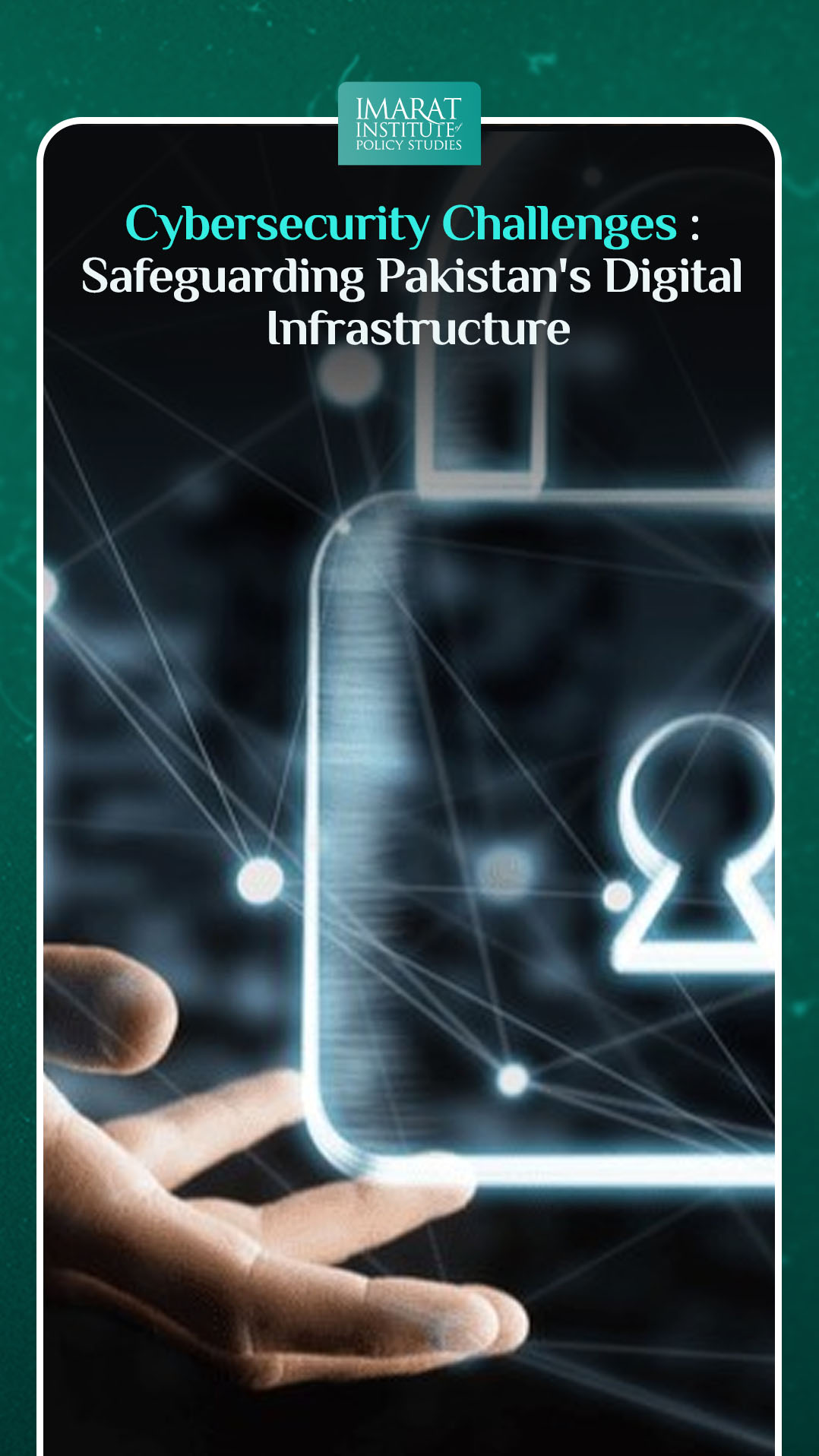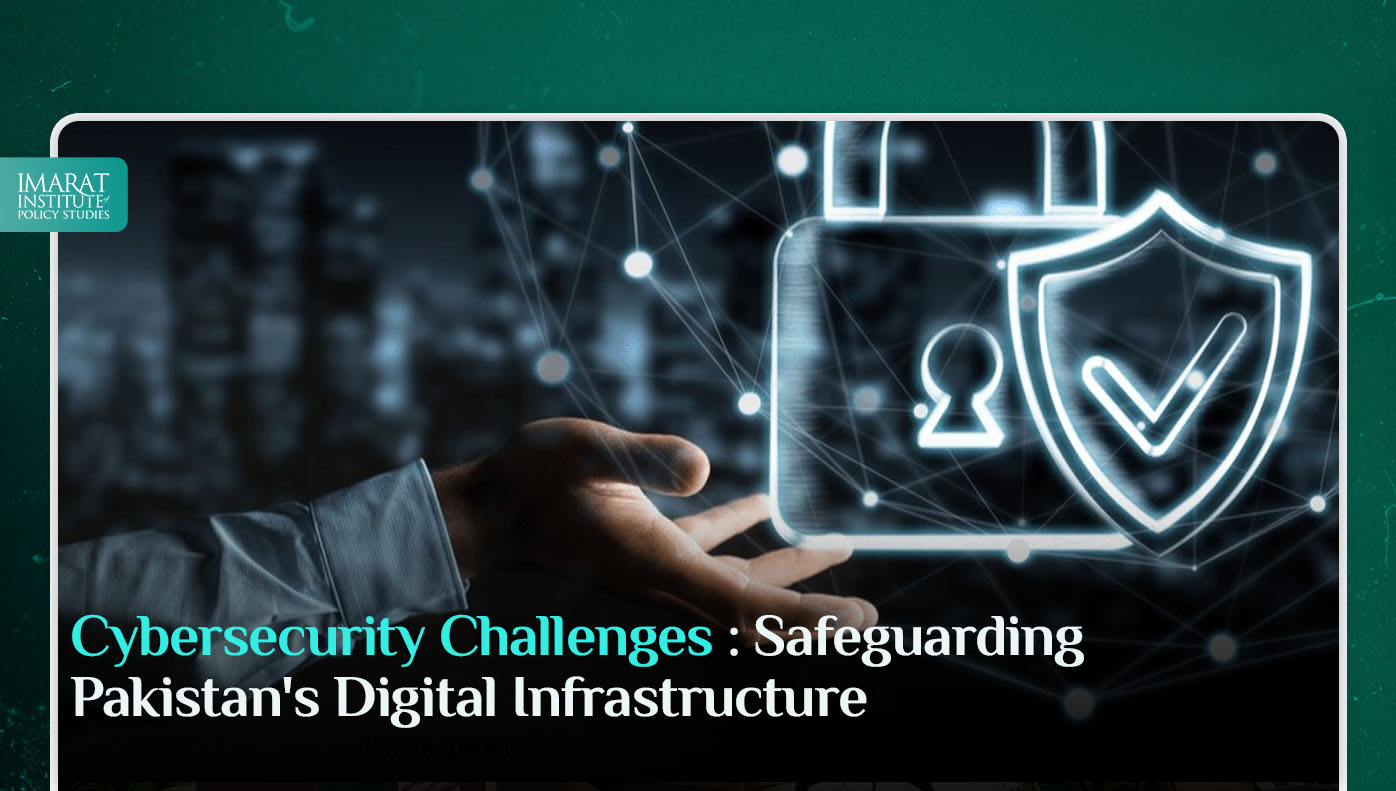In today’s interconnected world, where virtually every aspect of our lives is touched by digital technology, ensuring the security of our digital infrastructure has become paramount. Pakistan, like many other nations, faces a plethora of cybersecurity challenges as it seeks to protect its digital assets and ensure the smooth functioning of its economy and society. From protecting sensitive government data to safeguarding critical infrastructure and combating cybercrime, Pakistan’s cybersecurity landscape presents a complex and evolving set of challenges.
Growing Cyber Threats
The exponential growth of digitization in Pakistan’s economy and society has paved the way for an alarming surge in cyber threats. This rapid transformation has created a vast digital landscape, enticing malicious entities of various forms, from lone hackers to sophisticated cybercrime syndicates backed by state actors. These adversaries are ceaselessly on the lookout for vulnerabilities to exploit, employing a myriad of techniques to infiltrate systems and compromise data. Phishing attacks, a tactic where fraudulent emails or messages trick individuals into divulging sensitive information, have become increasingly common.
Likewise, malware infections, which include viruses, worms, and trojans, pose a significant threat by compromising the security of devices and networks. Ransomware, a particularly insidious form of malware, encrypts files and demands payment for their release, causing widespread disruption and financial loss. Additionally, data breaches, wherein unauthorized access leads to the exposure of sensitive information, are rampant. These cyber threats not only jeopardize data security but also have far-reaching consequences, potentially disrupting essential services and eroding public trust in digital systems. As organizations and individuals in Pakistan navigate this treacherous cyber landscape, the need for robust cybersecurity measures and vigilant defenses has never been more urgent.
Limited Awareness and Capacity
Despite the increasing recognition of cybersecurity issues, Pakistan grapples with a significant gap in both awareness and capability across its organizational landscape. Many entities, particularly small and medium-sized enterprises (SMEs), find themselves inadequately equipped to confront the complexities of cyber threats. SMEs, which form the backbone of Pakistan’s economy, often operate on tight budgets and lack the requisite technical expertise to implement robust cybersecurity measures. Consequently, they become vulnerable targets for cyber attacks. Compounding this challenge is the country’s shortage of skilled cybersecurity professionals.
The deficit in trained experts exacerbates the difficulty faced by organizations in fortifying their defenses against evolving threats. To address these deficiencies, concerted efforts are necessary to bridge the skills gap and enhance cybersecurity awareness among businesses and individuals alike. This entails investing in training programs, workshops, and educational initiatives tailored to the specific needs of different sectors. Moreover, fostering collaboration between academia, industry, and government bodies can facilitate knowledge-sharing and the development of tailored solutions. By prioritizing these measures, Pakistan can bolster its overall cybersecurity posture and better protect its digital infrastructure from emerging threats.
Vulnerable Critical Infrastructure
Pakistan’s critical infrastructure, encompassing power plants, telecommunications networks, and financial systems, stands as the lifeblood of the nation’s economy and societal functioning. However, this very significance renders it a prime target for cyber attacks, with potential repercussions spanning far beyond individual sectors. A successful cyber attack on any of these vital systems could precipitate widespread disruption, economic downturns, and even threaten national security. To fortify the resilience of Pakistan’s critical infrastructure against such looming cyber threats demands a multi-faceted approach. First and foremost, robust cybersecurity measures must be meticulously implemented, encompassing state-of-the-art technologies, stringent access controls, and robust encryption protocols. Moreover, regular vulnerability assessments, conducted by skilled cybersecurity professionals, are imperative to identify and address weaknesses proactively.
Equally crucial is the formulation of comprehensive contingency plans, designed to mitigate the impact of potential cyber attacks and facilitate swift recovery in the event of a breach. However, safeguarding critical infrastructure against cyber threats cannot be achieved in isolation; it necessitates collaborative efforts between the public and private sectors. Close cooperation, information sharing, and resource pooling between government agencies, industry stakeholders, and cybersecurity experts are paramount for bolstering the cybersecurity defenses of critical infrastructure. Only through such concerted endeavors can Pakistan fortify its critical infrastructure against the ever-evolving landscape of cyber threats, ensuring the uninterrupted functioning of essential services and safeguarding the nation’s prosperity and security.
Regulatory Challenges
Regulatory challenges pose a significant hurdle to achieving effective cybersecurity in Pakistan. Crafting and enforcing cybersecurity regulations that effectively balance the imperatives of security and innovation is a complex task. The country must navigate a landscape where technological advancements outpace regulatory frameworks. Flexibility becomes paramount, as regulations need to evolve rapidly to address emerging cyber threats. Furthermore, there’s a pressing need for clear and comprehensive guidelines that organizations can adhere to, ensuring a standardized approach to cybersecurity practices across sectors.
However, achieving this balance is no easy feat, as overly stringent regulations risk stifling innovation, while lax regulations may leave vulnerabilities exposed. Moreover, international collaboration is crucial for Pakistan to tackle transnational cyber threats effectively. Sharing threat intelligence and best practices with other nations can enhance the country’s cybersecurity capabilities and contribute to a more secure global cyberspace. Therefore, Pakistan must strive to foster robust regulatory frameworks that promote cybersecurity while fostering innovation and adaptability in the digital landscape.
Privacy Concerns
As Pakistan accelerates its adoption of digital technologies like e-commerce, online banking, and social media, the spotlight on privacy and data protection intensifies. This heightened scrutiny stems from the recognition that personal data is not merely a commodity but a fundamental aspect of individual autonomy and dignity. Balancing the imperative to safeguard citizens’ privacy rights with the necessity of leveraging data for legitimate business and governmental purposes presents a nuanced challenge.
Robust data protection laws and regulations are imperative to establish a framework that delineates permissible data usage, mandates consent mechanisms, and enforces accountability measures for entities handling personal information. Such laws should encompass provisions for data minimization, purpose limitation, transparency, and individuals’ rights to access and control their data. Moreover, effective enforcement mechanisms and penalties for non-compliance are essential to ensure adherence to these regulations. By fortifying the legal and regulatory framework surrounding data privacy, Pakistan can foster a culture of trust and confidence in its digital economy, bolstering both consumer confidence and international competitiveness.
Conclusion
In conclusion, safeguarding Pakistan’s digital infrastructure presents a multifaceted challenge that requires a comprehensive and proactive approach. By addressing the growing cyber threats, enhancing cybersecurity awareness and capacity, protecting critical infrastructure, implementing effective regulations, and respecting privacy rights, Pakistan can strengthen its cybersecurity defenses and foster a safe and secure digital environment for all its citizens. Collaboration between government, industry, academia, and civil society is essential to address these challenges and build a resilient cybersecurity ecosystem that can withstand the evolving threat landscape. Only through concerted efforts and collective action can Pakistan effectively mitigate the risks posed by cyber threats and ensure the long-term security and prosperity of its digital future.
This article is written by Radma Nouman. Radma is a research analyst at the Iqbal Institute of Policy Studies (IIPS).



Leave a Reply